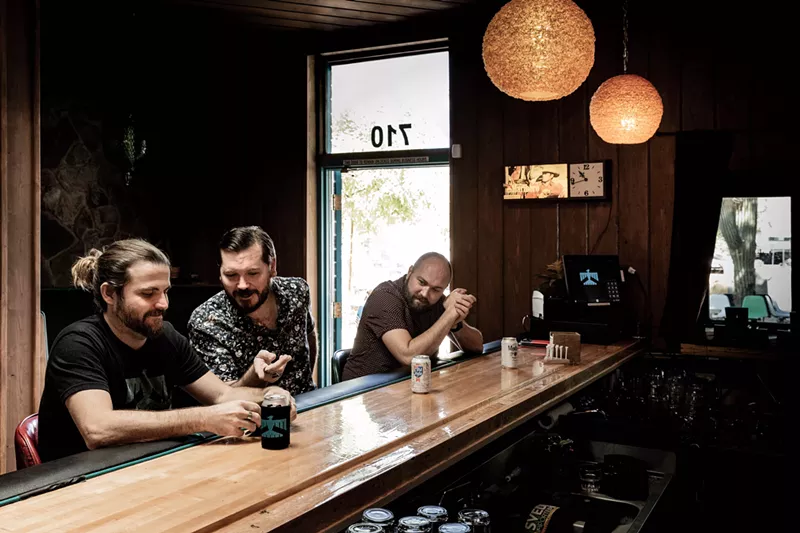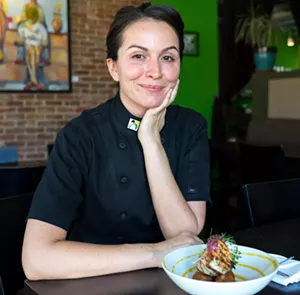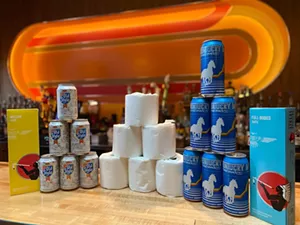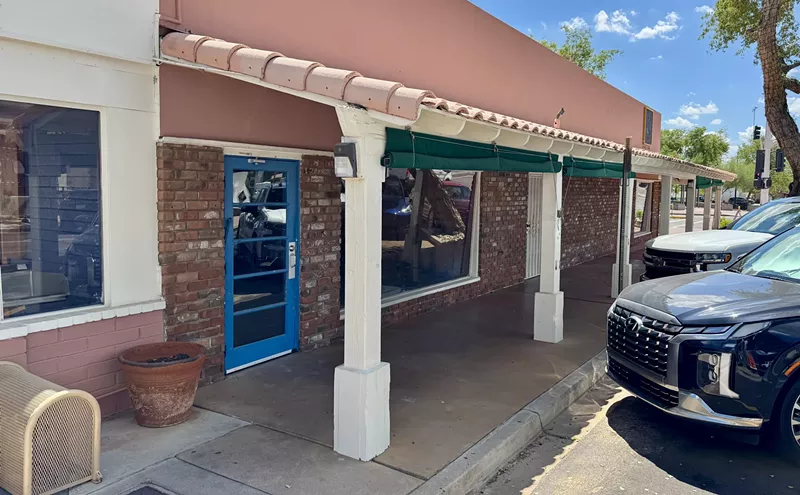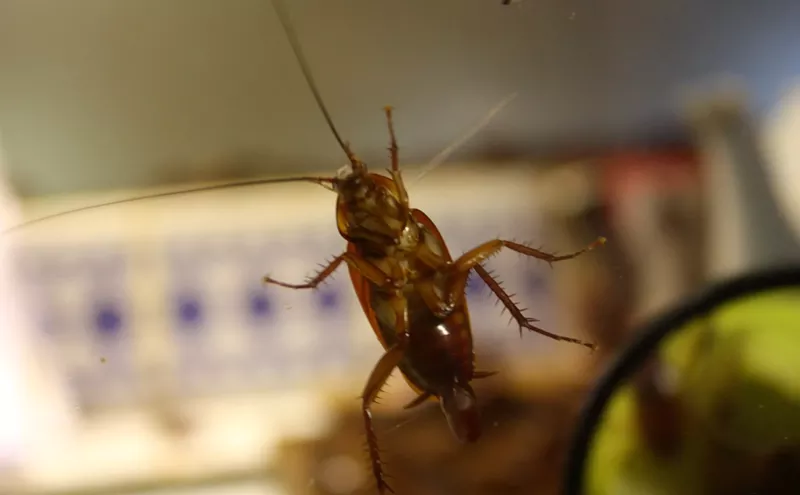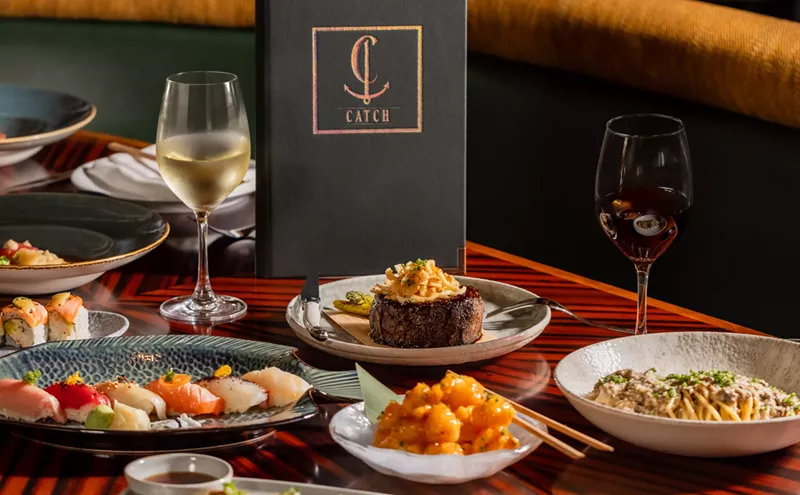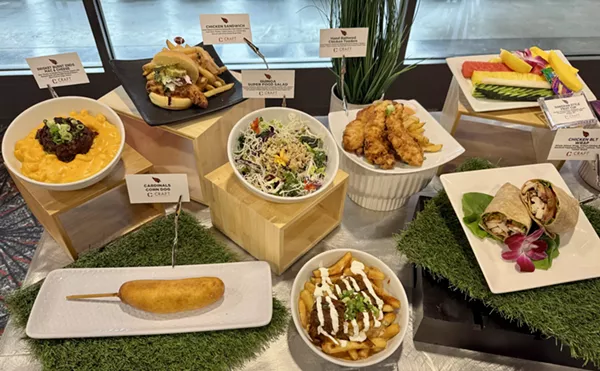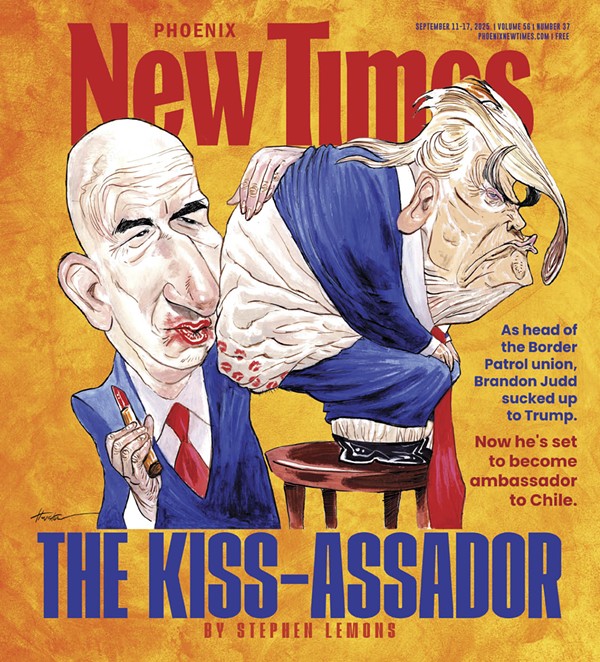Both businesses face a dilemma. Should they remain open and switch up their business model to just takeout, curbside, and delivery orders, or close completely? Should they apply for a loan while competing with bigger restaurant names? If they do receive the loan, can they use it effectively or will the restrictions render it practically useless?
Danielle Leoni, co-owner The Breadfruit & Rum Bar, says life as she knew it effectively stopped in mid March when restaurants and bars switched to takeout and delivery. "The mayor at first had said that restaurants should close before the governor did it, so we were responding to the mayor's proclamation," she says. "But at the same time, our restaurant had tremendous momentum."
With a surplus of food on hand — in the anticipation of March being one of their busiest months plus the twice-weekly food deliveries — Leoni and her restaurant partner/husband Dwayne Allen quickly switched to takeout. But, they didn't have much success. After some internal struggle, they decided to let staff go while maintaining takeout orders — just the two of them. This was especially challenging, because Leoni has never been a fan of to-go orders.
"I'm not an advocate of it. I just think if you have time to eat, you should come in and eat, and if you don't have time to eat, then you just don't have any business dealing with it," she says.
Then, with just a few takeout orders coming in a day, Leoni and Allen decided to shutter the restaurant completely on March 19. "We decided that it would be our last night, because it's physically exhausting to open the restaurant and stand there all night and cook everything and rush from one end to the other of the restaurant and of the kitchen, and ring people up," Leoni says. "And we worried about our guests not standing six feet apart, worried about our guests congregating in our dining room. So many worries, and at the end of it, why?"
Later that night, Leoni's mind was racing and she couldn't sleep, but the inspiration started to flow.
"All of a sudden, my world is out of control. What has to happen so we can rebound? Like, what do I need so I can actually emerge from this crisis successfully?" Leoni says. "And I penned that letter to Doug Ducey."
That letter was the start of the Arizona Small Restaurant Coalition established by Leoni on March 21. The online form now features a long list of supporting dining establishments across the state. Leoni was also instrumental in getting Ducey to include a moratorium on commercial evictions as part of his executive order.
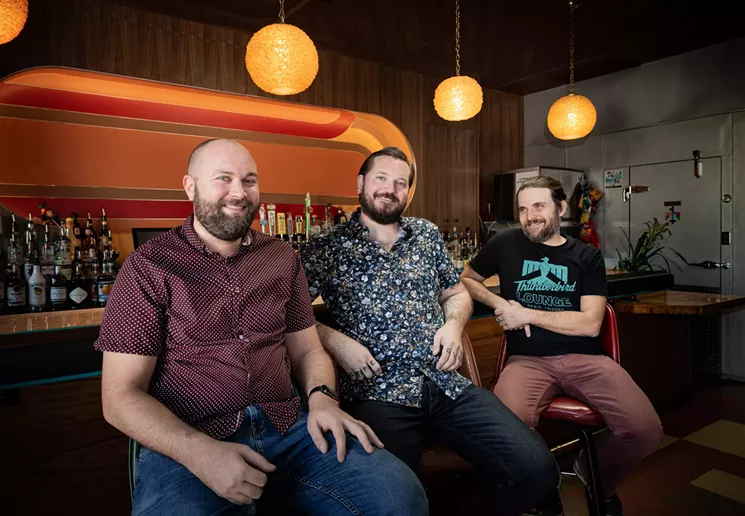
Jake Wiedmann, Jeremiah Gratza, and Brett Boyles are the owners of Thunderbird Lounge.
Charles Barth
"Mayor Kate Gallego said all bars and restaurants had to close on St. Patrick's Day; that was pretty much the last day we were fully operational," Gratza says. "The next day, we decided to switch our business model to delivery and to-go, and we actually had just ordered a bunch of toilet paper that weekend, so we decided that for everyone that was going to order pickup and delivery, we were going to give out a free roll of toilet paper as well."
Before opening Thunderbird Lounge in April 2019, Gratza cashed out his 401K and savings account, among other things. The bar became an instant hot spot, and the team was looking forward to a busy season of spring training fans, out-of-town visitors, and patio-seekers at the bar. But now, Gratza and the two other owners are relying on their first-year profits.
Owners of restaurants, bars, and eateries are used to living paycheck to paycheck and putting most earnings back into the businesses, but the COVID-19 shutdown has proved to be a different beast altogether, especially when it comes to securing funds promised through the CARES Act for small businesses, specifically the Paycheck Protection Program (PPP). There's been frustration all around, especially for Gratza who applied for PPP as soon as the application process started, but was not selected.
"We decided to stay open to make sure that our employees could still get paid and pay their rent and everything, so we applied for the PPP and thought that we had a good chance and were in," Gratza says. However, Thunderbird Lounge did not qualify for the first round, and the money ran out.
"We had literally gotten our application in the second that you could get it in; there was no hesitation and no waiting on our end. We got it in as soon as possible, and it still ran out."
With another round of applying for the loan to go, Gratza say they're trying to remain positive while finding creative ways to connect with customers. They recently partnered with a local Scottsdale bookshop and gave out a free book in exchange for the purchase of a bottle of liquor. They started a west Valley delivery route. They've stayed active on social media, and yes, there is still toilet paper available.
Leoni just received the PPP in her bank account but is unsure how to handle it. The rules stipulate 75 percent allocated must go to payroll and the other 25 percent can go to costs like rent, utilities, and open invoices. She knows she'll be paying rent to her landlord immediately but doesn't currently have any employees to pay. Much of her staff applied for unemployment and may be pulling in more income than they used to at the restaurant.
"And then they can get off unemployment which is difficult to get on, I'll hire them, and then I'm going to have to put them all on furlough or lay them all off again, because my restaurant's not open," Leoni says. "It seems like I'm doing them a disservice by asking them to get off unemployment, let them have this money, and then let them go again. It doesn't make sense, and we're just going to overload our unemployment system again."
Another option would be to try to get her second business off the ground and hire some of her former staff. Big Marble Organics is Leoni's carbonated beverage company — set up in a warehouse right up the street from The Breadfruit that was supposed to open in March. Its main product is a spicy, Jamaican-style ginger beer originally conceived behind the Breadfruit bar.
Leoni has no plans to reopen the Breadfruit until Governor Ducey reopens the state. But even then she sees looming problems.
"Who wants to be in a dining room with a bunch of strangers all breathing on each other, and you cannot eat with a mask on?" Leoni says. "So my staff is going to have to wear goggles and respirators, because people are breathing in my tiny little dining room? Even if I sit people six feet apart and seat 12 people in my dining room, there's still 12 people that I don't know or trust breathing into the air, and now what, I have cooks in a 90-degree kitchen with googles and face masks on, too? I mean, why?"
Back at Thunderbird, Gratza says they'll stay open as long as possible.
"We'd rather still offer something for the money," Gratza says. "It may only be 10 percent of what we're used to, but that 10 percent is still enough to pay our employees ... this is the only job they have."

